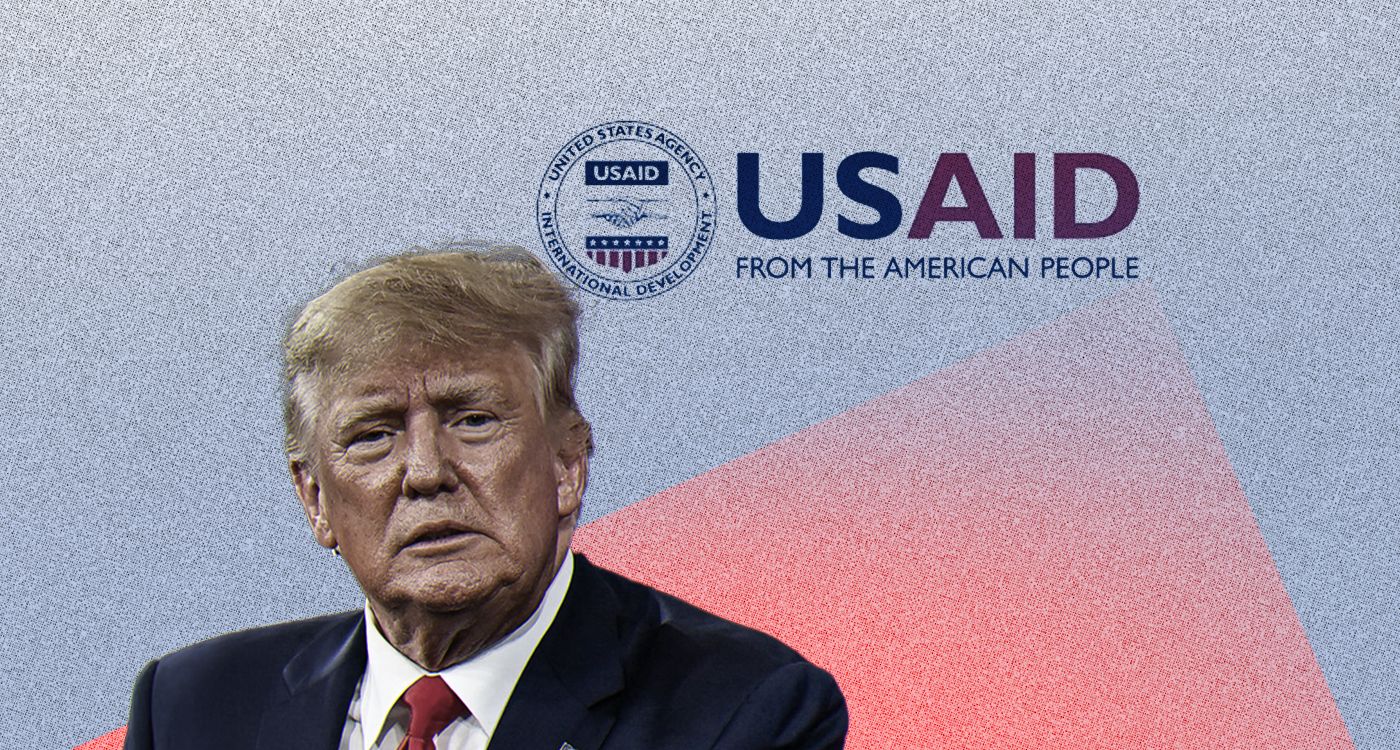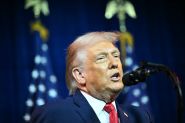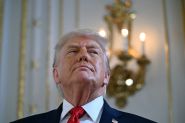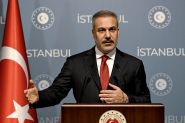- Home
- Middle East
- USAID, a Soft Power Tool That Does Not Serve Trump’s Policy

Insubordination, waste of taxpayers’ money and promotion of agendas that run counter to US national interests are some of the reasons spelled out by US President Donald Trump’s administration for freezing foreign aid and targeting the US Agency for International Development (USAID) in particular.
Trump, a long-term critic of overseas spending, has entrusted billionaire Elon Musk to lead his drive to shrink the federal government and oversee the project, blasting the agency as being run by a “bunch of radical lunatics” and vowing “to get them out.”
On his part, Musk described USAID as “a criminal organization,” stating that “it was time for it to die.”
While its top aid recipients include Ukraine, Ethiopia, Jordan, the Democratic Republic of Congo, Somalia, Yemen, Afghanistan, Nigeria, South Sudan and Syria, USAID’s large autonomy has enabled it in the past to provide humanitarian assistance to countries with which Washington has no diplomatic relations. This includes Iran and North Korea.
The radical change in the US political landscape after Trump’s return to the White House displays a flagrant competition between two political schools — the liberals who rely on soft power and the realists who favor hard power, and which many of Trump’s advisors belong to, according to political analyst and military strategist Riad Kahwaji.
“USAID is America’s main tool of soft power, basically, information, diplomacy, aid to civil society and women empowerment, which democratic administrations rely heavily on. They advocate for all the things that today’s liberalism stands for, including LGBT, which Trump opposes vehemently,” Kahwaji, Founder and Director of Dubai-based INEGMA (Institute for Near East and Gulf Military Analysis), told This is Beirut.
The Trump administration sees the aid provided by USAID as a big waste of taxpayers’ money, as they believe in the use of hard power, including economic power as a tool of sanctions and punishment, to achieve their interests.
“Security at all levels, including economic security, is very high on their agenda, multilateralism is very low, that’s why they don’t care about international organizations like the World Health Organization or the UN Refugee Agency for Palestinian refugees, UNRWA,” Kahwaji maintains.
“With diplomacy being their second layer, I think we’re going to see this US administration resorting to hard power, either through the economy or possibly through the military as a primary tool, supported by diplomacy. The world will have to get used to this approach, as the line separating allies from foes really narrows,” Kahwaji added.
Soros Connection
USAID’s close relationship with the network of organizations backed by billionaire philanthropist George Soros, particularly his Open Society Foundations (OSF), came under scrutiny for suspected funding of political agendas and global unrest.
According to the Heritage Foundation, a US conservative think tank, the collaboration between USAID and Soros’ OSF was cemented in 2009, when OSF was reportedly made the “main implementer” of USAID’s foreign aid programs.
The late 1990s and early 2000s marked a period of intense political upheaval in Eastern Europe, as a series of “color revolutions” swept across the region. Soros’ NGOs were often at the center of these protests, playing a significant role in shaping the political landscape during this time. In 2003-2004, USAID and Soros’ International Renaissance Foundation joined forces to support Ukraine’s ‘Orange Revolution,’ a pivotal moment in the country’s push for democratic reforms. Before this, the US government had already allocated substantial resources toward promoting democracy in Ukraine, with $54.7 million spent in 2003 and $34.11 million in 2004 through a range of government agencies, including USAID.
Fast-forward to 2018, and further revelations about USAID’s involvement with Soros-linked groups raised concerns. The legal watchdog Judicial Watch uncovered documents that showed USAID sponsored Soros’ globalist agenda in Guatemala, a partnership that reportedly saw OSF spend approximately $100 million between 2015 and 2018 to support various unrest-related sources in Latin America. Similarly, in 2016, USAID is reported to have allocated $9 million to support radical left-wing activists in Albania, a project overseen by Soros’ East West Management Institute.
With such large sums at play, concerns about the transparency and oversight of these collaborations continue to fuel debate on the US government’s relationship with global activist movements.
Trump’s move against USAID could also be seen as a resumption of his first administration’s bid to reduce foreign aid payments, when it suspended funding to various UN agencies, including the UN Population Fund and funding to the Palestinian Authority. In Trump’s first term, the US also withdrew from the UN Human Rights Council and its financial obligations to that body.
The Secretary of State, Marco Rubio, is now the acting administrator of the agency, which was established in 1961, at the height of the Cold War, with the aim of better coordinating foreign assistance as a key platform of US foreign policy in promoting democratic principles and values through development and humanitarian aid.
USAID administered about 60% of US foreign assistance and disbursed $43.79bn in the 2023 fiscal year, according to a report by the Congressional Research Service (CRS). Its workforce of 10,000, about two-thirds of whom serve overseas, assisted about 130 countries. It is funded by Congress, based on administration requests.
Its employees have been locked out of its Washington, DC headquarters, while others, at home and abroad, have been suspended, triggering fears of an imminent shutdown.
Read more




Comments